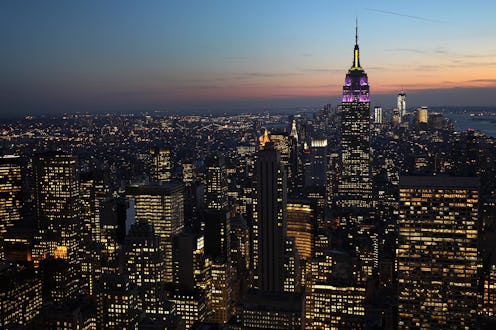News
America's Most Diverse Cities Might Surprise You
America's most ethnically and racially diverse cities might surprise you. Although major cities are often thought of as cultural melting pots, smaller places actually prove to be more diverse. The personal finance social network WalletHub analyzed 350 of the most populous U.S. cities based on ethnic, racial, language, and region of birth diversity to determine which American cities are the most diverse.
The U.S. Census Bureau projects that the nation will become a majority-minority by 2043, meaning that no single group will make up a majority, although non-Hispanic whites are expected to remain the largest group. Currently more than half of babies born in the U.S. are minorities, and non-Hispanic whites are expected to make up 40 percent of the population by 2019, up from 31 percent in 2000.
WalletHub initiated this diversity study because these projections make it "imperative to close the racial gaps across U.S. cities to ensure economic prosperity," according to their website. The only major U.S. city to make the list of the top 10 most diverse cities was New York, which isn't surprising, but the fact that no other major city made the top 10 is a little weird.
Here's WalletHub's top 10 most diverse cities:
- Jersey City, New Jersey
- Germantown, Maryland
- Hayward, California
- New York, New York
- Carson, California
- San Jose, California
- Irving, Texas
- Richmond, California
- Santa Clara, California
- Stockton, California
Californian cities are obviously the most diverse, snagging six of the 10 spots, though major cities like East Los Angeles are predominantly one ethnicity (East Los Angeles is 97 percent Hispanic, according to the study), which makes them less diverse overall. The study asked different experts to weigh in on the advantages and disadvantages of living in an ethnically diverse area. Angie Y. Chung, Associate Professor of Sociology at the University of Albany, says in the study:
From a societal perspective, exposure to other languages and cultures helps native-born Americans to adapt to an increasingly diverse nation and become better prepared for an increasingly competitive global economy. ... In addition, the presence of a developed ethnic enclave economy can potentially help some immigrant minorities overcome some of the stumbling blocks of adapting to a new country by providing them with a strong support system.

As for challenges to living in a very diverse area, problems arise when a city's population change quickly. Chung says:
As with cities that experience any type of rapid demographic change, the biggest challenge is adapting to the needs of the incoming population, especially in an environment of limited resources and increasing social inequality.
Because America's ethnic demographics are rapidly changing, it's increasingly important that local governments are prepared to promote cultural diversity rather than heighten inequalities. Ethnically diverse cities have the potential to offer residents social and economic benefits if the differing groups intermingle and cooperate.
Images: Getty Images; WalletHub
